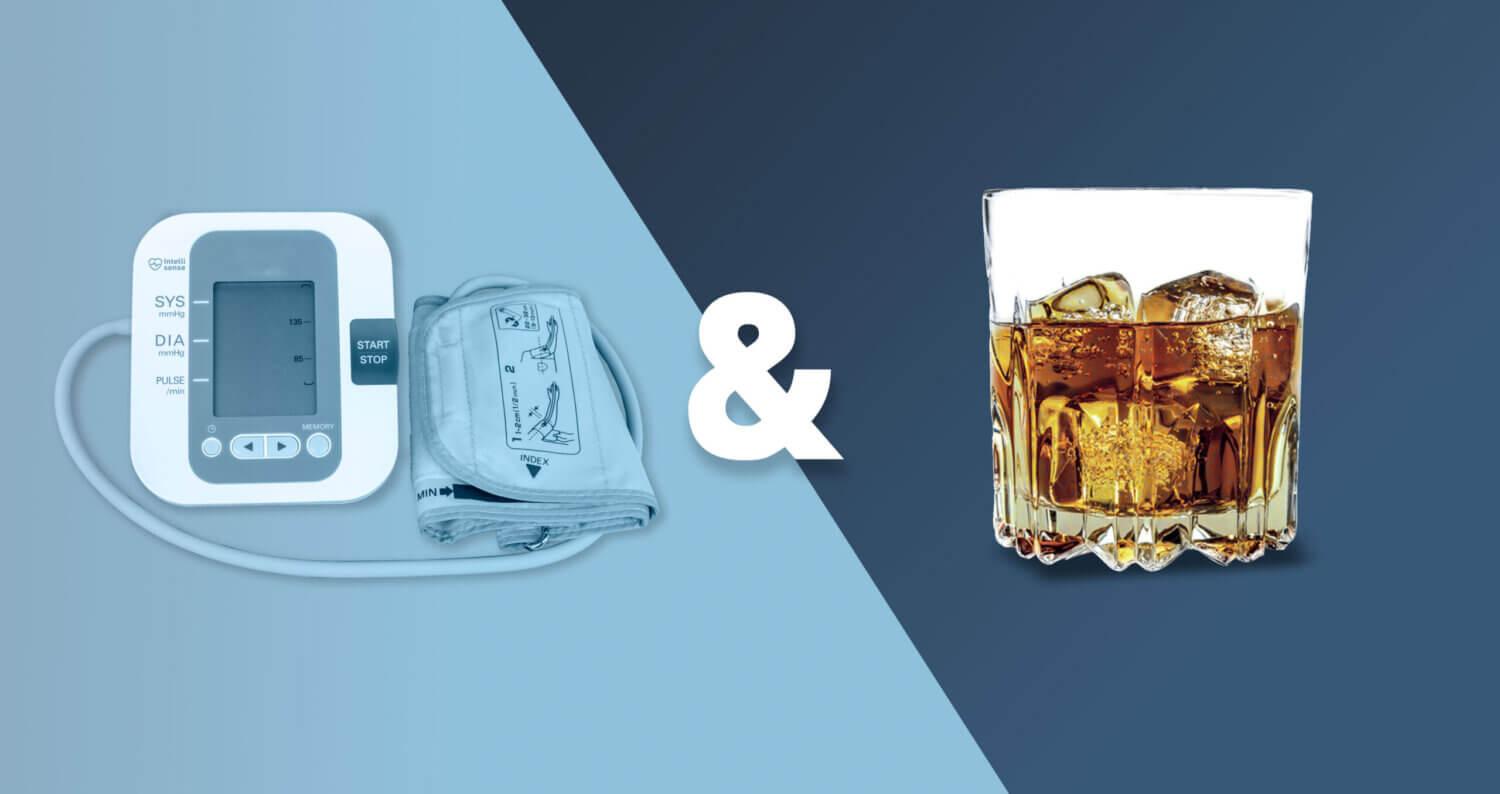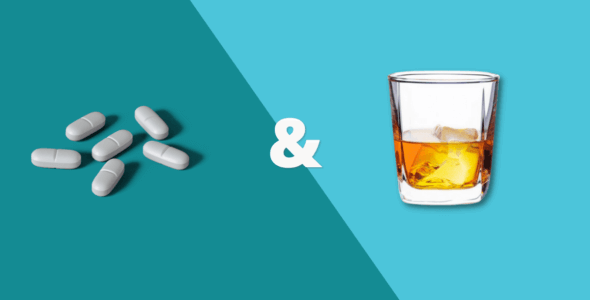Blood pressure and alcohol
Table of contents
Blood pressure can be described as the measure of force your heart uses to pump blood around your entire body. This measurement takes into account the systolic blood pressure (when your heart muscle contracts) and the diastolic blood pressure (when your heart muscle relaxes). Keeping these two values in the normal range is important for your heart health. High blood pressure (hypertension) is known to be one of the risk factors for cardiovascular disease. Have you recently been diagnosed with high blood pressure? Has your doctor advised you on the amount of alcohol you can drink? How does drinking alcohol affect your blood pressure? Keep reading to find out the answers to these questions and more.
How does a person know if they have high blood pressure?
Drinking excessive alcohol is considered one of the most common causes of raised blood pressure, leading to other health problems. This is the reason why doctors will question a patient’s alcohol intake when a high blood pressure reading is measured. Many people don’t realize they have hypertension until they have it measured because early high blood pressure doesn’t bring on troublesome symptoms.
High blood pressure is defined per the 2017 American College of Cardiology/American Heart Association Blood Pressure guidelines as anything greater than or equal to 130/80 mm Hg. Anything below this value is considered normal blood pressure or normotensive. You may or may not have symptoms of high blood pressure. The only real way to know for sure is to have your blood pressure measured by a healthcare professional.
How does alcohol affect blood pressure?
Alcohol affects blood pressure in several different ways:
- It causes blood vessels to constrict making them narrower and also causing more fluid to build up in the body. This combination causes increased blood pressure. i.e. a narrower blood vessel for blood flow causes increased pressure on the walls of the blood vessels
- It prevents the blood pressure monitoring receptors in the body from working correctly. This means blood pressure levels can not be regulated correctly
- Alcohol can be high in calories and may contribute to weight gain, another factor that increases the prevalence of high blood pressure
- It increases the amount of calcium in the blood which constricts blood vessels further, leading to high blood pressure
- It increases cortisol levels in the blood which has a knock-on effect to excrete less urine. This buildup of fluid pressure in the blood vessels increases blood pressure
High blood pressure can significantly increase cardiovascular risks such as your risk of stroke, heart attack, heart disease, heart rate abnormalities, or heart failure. You are also at a higher risk of kidney disease and vascular dementia.
Will quitting alcohol lower blood pressure?
Hypertension is one of the most preventable alcohol-related health risks. Reducing your alcohol consumption reduces your blood pressure. How do you know if you are a heavy drinker or a moderate drinker? Let us take a look at how the National Institute on Alcohol Abuse and Alcoholism defines it:
Heavy drinking 4 drinks on any day or more than 14 drinks per week for males. More than 3 drinks on any day or more than 7 drinks per week for females.
Binge drinking 5 or more drinks for males, or 4 or more drinks for females), in about 2 hours.
The 2020-2025 Dietary Guidelines for Americans describes:
Moderate drinking as 2 drinks or less in a day for men and 1 drink or less in a day for women.
The Lancet looked at systematic reviews specifically on the effect of a reduction of alcohol intake on blood pressure. It was found that people who drank two or fewer drinks per day, a reduction in alcohol was not linked with a significant reduction in blood pressure. However, in people who drank more than two drinks per day, a reduction in alcohol intake was associated with increased blood pressure reduction.
There is some evidence that moderate amounts of alcohol in particular red wine might help to slightly raise levels of good cholesterol, however physical activity can also boost your HDL cholesterol without the need for a glass of wine.
Drinking alcoholic beverages is both a tonic and a poison. Light-to-moderate alcohol consumption is typically safe but given the complex nature of the effects of alcohol on the body and the complexity of people who drink it, alcohol intake guidance should ideally be tailored.
Treatment for alcohol use disorder
Alcohol can have an impact on every system in the body causing health problems throughout the body: cardiovascular disease, liver disease, immune system problems, cancer, ulcers, and disturbance of the gastrointestinal system. Many of these problems can lead to life-threatening outcomes.
The treatment of alcohol dependency involves a variety of different methods. The National Institute on Alcohol Abuse and Alcoholism (NIAAA) and the National Institute of Health (NIH) are both trusted sources you can access to get help for yourself or a loved one. A combination of medical advice from a health care provider, social, and family support is also essential.
Medically reviewed
A medical professional has reviewed this article.


Jamie Winn, PharmD
Jamie Winn, PharmD
Dr. Jamie Winn received his Doctor of Pharmacy in 2002 from the University of South Carolina College of Pharmacy, Columbia, SC. Jamie is a medical reviewer for NiceRx.


